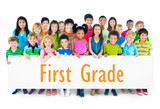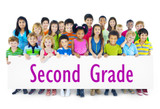What Your Sixth Grader Should Be Learning
Sixth grade represents a crucial stage in a child's educational journey, characterized by increasing independence, complex learning tasks, and the development of critical thinking skills. As children transition into middle school, they build upon the foundational knowledge acquired in previous grades and engage in more advanced and interdisciplinary learning experiences. In this article, we explore what your sixth grader should be learning and why these skills are essential for their continued growth and academic success.
1. Advanced Reading Comprehension and Analysis: Sixth graders focus on developing advanced reading comprehension skills by analyzing texts more deeply, evaluating literary elements, and synthesizing information from multiple sources. They engage in close reading, annotate texts, and participate in discussions that require them to critically evaluate author's purpose, point of view, and themes. Advanced comprehension strategies enhance their ability to comprehend complex texts and think critically about what they read.
2. Writing Proficiency and Argumentation: Sixth graders refine their writing skills by composing more sophisticated and structured pieces across various genres, including narratives, expository essays, persuasive arguments, and research reports. They learn to develop clear and compelling arguments, use evidence to support their claims, and address counterarguments effectively. Writing becomes a tool for persuasion, analysis, and critical thinking.
3. Mastery of Mathematical Concepts and Problem-Solving: Mathematics in sixth grade involves mastering advanced concepts such as fractions, decimals, percentages, algebraic equations, geometry, and data analysis. Sixth graders deepen their understanding of mathematical operations and problem-solving strategies through real-world applications and collaborative projects. They engage in mathematical reasoning, analyze patterns, and communicate their mathematical thinking effectively.
4. Scientific Inquiry and Exploration: Sixth graders engage in scientific inquiry and exploration, exploring concepts such as physical science, life science, earth science, and engineering design. They conduct experiments, make observations, and analyze data to develop hypotheses and draw conclusions. Through hands-on exploration and inquiry-based learning, they develop critical thinking skills and a deeper understanding of scientific concepts and processes.
5. Social Studies and Historical Understanding: Sixth graders delve into the study of history, geography, civics, and culture, exploring topics such as ancient civilizations, world geography, government systems, and global issues. They analyze primary and secondary sources, evaluate historical events from multiple perspectives, and draw connections to contemporary issues. Studying social studies fosters critical thinking, citizenship, and a sense of global awareness.
6. Advanced Language Skills and Literary Analysis: Sixth graders continue to expand their vocabulary and refine their language skills through reading, writing, and oral communication. They analyze complex texts, identify literary devices and techniques, and interpret themes and symbolism. Developing strong language skills enhances comprehension, communication, and academic achievement across all subjects.
7. Critical Thinking and Analytical Skills: Sixth graders develop critical thinking skills through analysis, evaluation, and problem-solving across various subjects. They learn to interpret complex information, make connections, and draw conclusions from texts, data, and evidence. Engaging in discussions, debates, and collaborative projects enhances their ability to think critically and creatively.
8. Digital Literacy and Technology Integration: Sixth graders further develop their digital literacy and technology skills, learning to navigate digital tools, evaluate online resources, and use technology for research, communication, and creative expression. They explore digital citizenship topics such as online safety, privacy, and responsible use of technology, preparing them for success in a digital world.
9. Continued Fine Motor Development: Fine motor skills continue to be refined in sixth grade through activities such as handwriting, drawing, painting, and crafting. Strengthening fine motor skills enhances dexterity, precision, and coordination, supporting tasks that require manipulation of small objects and tools.
10. Growth Mindset and Resilience: Sixth grade is an opportune time to cultivate a growth mindset and resilience in children. They learn to embrace challenges, persist in the face of setbacks, and view mistakes as opportunities for learning and growth. Developing a positive attitude towards learning fosters confidence, perseverance, and a lifelong love of learning.
In conclusion, sixth grade is a pivotal year for building upon foundational skills and fostering deeper understanding and inquiry across various academic disciplines. By focusing on reading, writing, math, critical thinking, and social-emotional development, educators and parents can ensure that sixth graders are well-equipped for the challenges and opportunities that lie ahead. It's not just about what children learn in sixth grade, but how they learn and the skills they acquire to become lifelong learners and contributing members of society.
Recent Posts
-
What Your Kindergartener Should Be Learning
Kindergarten marks the beginning of a child's formal education journey—a time of exploration, discov …Jan 7th 2026 -
What Your First Grader Should Be Learning
First grade is an exciting time in a child's educational journey. It marks the transition from the e …Jan 6th 2026 -
What Your Second Grader Should Be Learning
Second grade is a pivotal year in a child's educational journey, marked by continued growth and expl …Jan 5th 2026





